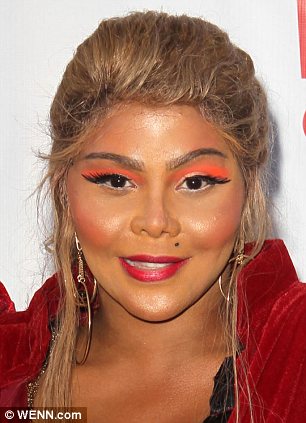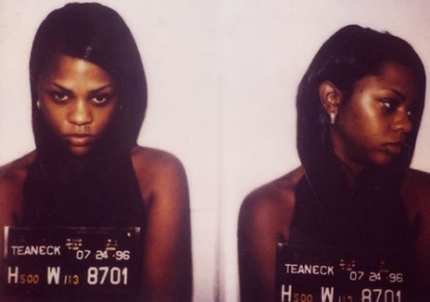Searching for Kim Jones (a.k.a. Lil’ Kim) #3
 This week has me thinking about Kim Jones (aka Lil Kim) again. A young woman I am working with e-mailed a photograph of her and I was left speechless. Kim is unrecognizable to me. I have always been fascinated by her and have written about her a couple of times on this blog here and here.
This week has me thinking about Kim Jones (aka Lil Kim) again. A young woman I am working with e-mailed a photograph of her and I was left speechless. Kim is unrecognizable to me. I have always been fascinated by her and have written about her a couple of times on this blog here and here.
The legend of Lil’ Kim begins with her “discovery” by Christopher Wallace (a.k.a. the Notorious B.I.G) on the streets of Bed-Sty in Brooklyn. She released her debut album titled “Hardcore” in 1996. In interviews, she has said: “Lil’ Kim is what I use to get money, a character I use to sell my records.” Yet one wonders if this is truly the case. What is the distance between the character of Lil’ Kim and Kimberly Jones? One thing is certain: she is a complex person, full of contradictions. It is perhaps this, above all, that makes her so interesting & relevant to me.
This Friday, a conference that I organized about violence in the lives of Chicago girls will be taking place at Roosevelt University. I will be facilitating a workshop about the need to reconceptualize how young women of color understand and experience relationship violence. Lil’ Kim figures prominently in my thinking on this matter.
In her music, Kim talks about having gotten pregnant as a teenager and getting an abortion. She has suggested that she was pressured into this choice by her boyfriend at the time. She has lamented her bad luck with men in interviews. She has written songs and rapped about living on the streets and having to do what you have to do to survive even if it is illegal. In interviews, she has alluded to trading sex for money and survival needs when she was a young girl.
Kim Jones is the product of an abusive home. Her father was verbally & physically violent towards her mother and brother. Kim has also hinted at having been sexually abused by a relative. Once her parents separated, she spent years basically homeless. Her mother had to rely on the kindness of friends and family to secure a place to stay. Finally, her mother had to give up custody of her children to Kim’s father. Kim lived with him for a few years and then left home at 14 years old.
While she was on the streets, she sold drugs and did anything else that she had to do to survive. At 17 years old, she met Christopher Wallace who was only 19 but on the verge of major stardom. By all accounts, Kim fell deeply in love with him. It is unclear whether he felt the same way. Ultimately she was destined to be his mistress and not his wife. Then in 1997, Wallace was gunned down and Kim was devastated.
The layers of trauma that she carries are apparent to even those of us who don’t know her personally. She has spoken about wishing that she were lighter skinned and more attractive when she was a girl. Looking at her current photograph, it is clear that her appearance issues continue to plague her. The following quote by writer and activist Asha Bandele about Kim is illuminating:
“She’s just like every little abused girl that I knew growing up. I do not believe that Kim is in control of her image because there’s nothing powerful about it, nothing rounded, nothing human. It’s a caricature. Just like when you see a male presenting himself as only a gangsta. . . We’re so much more complicated than that.”
I actually think the paradox of Kim is that her public image appears to be a mask concealing something much more compelling. She seems intent on protecting her core self from the prying eyes of fans. Yet we do seem to get some glimpses of her pain. The plastic surgery has come to symbolize that pain. The experience of violence seems to be ubiquitous in Kim’s life.
In my work with incarcerated girls, I see Kim’s story as a familiar one. There are thousands of young black girls who are currently locked up who share Kim’s life experience. In fact, Kim herself spent 10 months in prison in the mid-2000s.
Kim will apparently publish a book tentatively titled “the Price of Loyalty” about her prison experience. I wonder what she will say and if the book will be truthful or sensationalized. What was it like for her to be locked up? What did she think of the other women who were there too? Will she speak to how the intersections between race, gender, sexual orientation, and class played out in her experience? Should we expect that the book will illuminate or should we expect it to obscure the realities of prison life? I for one hope that Kim will remove her mask and for once share her own truth…

